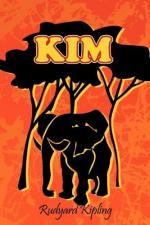’How can a man follow the Way or the Great Game when he is so — always pestered by women? There was that girl at Akrola of the Ford; and there was the scullion’s wife behind the dovecot — not counting the others — and now comes this one! When I was a child it was well enough, but now I am a man and they will not regard me as a man. Walnuts, indeed! Ho! ho! It is almonds in the Plains!’
He went out to levy on the village — not with a begging-bowl, which might do for down-country, but in the manner of a prince. Shamlegh’s summer population is only three families — four women and eight or nine men. They were all full of tinned meats and mixed drinks, from ammoniated quinine to white vodka, for they had taken their full share in the overnight loot. The neat Continental tents had been cut up and shared long ago, and there were patent aluminium saucepans abroad.
But they considered the lama’s presence a perfect safeguard against all consequences, and impenitently brought Kim of their best — even to a drink of chang — the barley-beer that comes from Ladakh-way. Then they thawed out in the sun, and sat with their legs hanging over infinite abysses, chattering, laughing, and smoking. They judged India and its Government solely from their experience of wandering Sahibs who had employed them or their friends as shikarris. Kim heard tales of shots missed upon ibex, serow, or markhor, by Sahibs twenty years in their graves — every detail lighted from behind like twigs on tree-tops seen against lightning. They told him of their little diseases, and, more important, the diseases of their tiny, sure-footed cattle; of trips as far as Kotgarh, where the strange missionaries live, and beyond even to marvellous Simla, where the streets are paved with silver, and anyone, look you, can get service with the Sahibs, who ride about in two-wheeled carts and spend money with a spade. Presently, grave and aloof, walking very heavily, the lama joined himself to the chatter under the eaves, and they gave him great room. The thin air refreshed him, and he sat on the edge of precipices with the best of them, and, when talk languished, flung pebbles into the void. Thirty miles away, as the eagle flies, lay the next range, seamed and channelled and pitted with little patches of brush — forests, each a day’s dark march. Behind the village, Shamlegh hill itself cut off all view to southward. It was like sitting in a swallow’s nest under the eaves of the roof of the world.
From time to time the lama stretched out his hand, and with a little low-voiced prompting would point out the road to Spiti and north across the Parungla.
‘Beyond, where the hills lie thickest, lies De-ch’en’ (he meant Han-le’), ’the great Monastery. s’Tag-stan-ras-ch’en built it, and of him there runs this tale.’ Whereupon he told it: a fantastic piled narrative of bewitchment and miracles that set Shamlegh a-gasping. Turning west a little, he steered for the green hills of Kulu, and sought Kailung under the glaciers. ’For thither came I in the old, old days. From Leh I came, over the Baralachi.’




